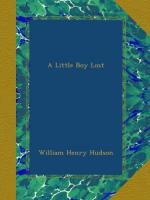“O mother, I wish I could see them!” he cried. “Why can’t I see them when you can?”
“Because your eyes are not like mine. Look, can you see this?” and she held up a small stone phial which she took from her bosom.
He took it in his hand and unstopped and smelt at it. “Is it honey? Can I taste it?” he asked.
She laughed. “It is better than honey, but you can’t eat it!” she said. “Do you remember how the honey made you feel like a snake? This would make you see what I see if I put some of it on your eyes.” He begged her to do so, and she consenting poured a little into the palm of her hand. It was thick and white as milk; then taking some on her finger tip, she made him hold his eyes wide open while she rubbed it on the eye-balls. It made his eyes smart, and everything at first looked like a blue mist when he tried to see; then slowly the mist faded away and the air had a new marvellous clearness, and when he looked away over the plain beneath them he shouted for joy, so far could he see and so distinct did distant objects appear. At one point where nothing but the grey haze that obscured the distance had been visible, a herd of wild cattle now appeared, scattered about, some grazing, others lying down ruminating, and in the midst of the herd a very noble-looking, tawny-coloured bull was standing.
“O mother, do you see that bull?” cried Martin in delight.
“Yes, I see him,” she returned. “Sometimes he brings his herd to feed on the hillside, and when I see him here another time I shall take you to him, and put you on his back. But look now at the sky, Martin.”
He looked up, and was astonished to see numbers of great birds flying north, where no birds had appeared before. They were miles high, and invisible to ordinary sight, but he could see them so distinctly, their shape and colours, that all the birds he knew were easily recognized. There were swans, shining white, with black heads and necks, flying in wedge-shaped flocks, and rose-coloured spoonbills, and flamingoes with scarlet wings tipped with black, and ibises, and ducks of different colours, and many other birds, both water and land, appeared, flock after flock, all flying as fast as their wings could bear them towards the north.
He continued watching them until it was past noon, and then he saw fewer and fewer, only very big birds, appearing; and then these were seen less and less until there were none. Then he turned his eyes on the plain and tried to find the herd of wild cattle, but they were no longer visible; it was as he had seen it in the morning with the pale blue haze over all the distant earth. He was told that the power to see all distant things with a vision equal to his mother’s was now exhausted, and when he grieved at the loss she comforted him with the promise that it would be renewed at some other time.
[Illustration: ]




